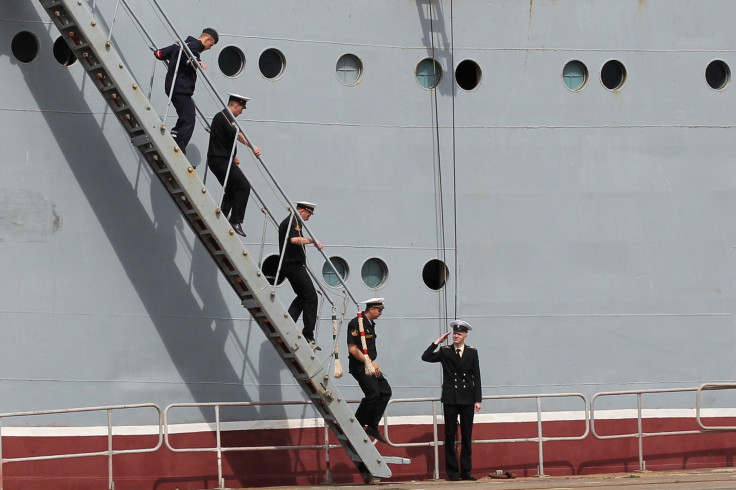As Russian Sanctions Force France To Make Tough Choices, Military Sale To Asia May Offer Easy Way Out

As new European sanctions against Russia take hold, France finds itself vacillating between two conflicting agendas: U.S. political will and E.U. economic need.
France has built two warships for Russia, and while the contract to build them is not directly affected by economic and trade sanctions placed on the former Soviet country last week, the fate of two $1.6 billion French-made helicopter carrier-assault ships is in the balance.
“I think the French and the E.U. could look outside Europe towards a country like Japan or Korea because they have pressing defense needs,” said Ariel Cohen, principal of International Markets Analysis, Ltd. and former senior research fellow in Russian and Eurasian studies at the Heritage Foundation in Washington, D.C. “North Korea, in the case of Korea; China, in the case of Japan.” Cohen also said that India could be a potential buyer, as it has the fastest growing navy in Asia.
A German study in May suggested that the E.U. might buy the two ships instead of allowing them to go to Russia, which would alleviate France’s financial risk -- the need to either eat the massive cost or pay fines for violating the sanctions -- and avoid a political and public drama that would inevitably follow a sale.
That idea gained traction after the German navy suggested officially that the E.U. buy both ships because no single country in Europe could realistically take on the costs.
A European Union spokesperson told the International Business Times that he was aware of the issues with the two ships but that he could not confirm that the E.U. might buy out the contract.
“The fact that the E.U. doesn’t know about this idea shows how deep the problems in E.U. defense decision-making are right now, despite the fact that it is in the E.U.'s and the French interest not to provide the ships to Russia at this time,” Cohen said.
If a sale were to go through to the E.U., the ships would likely be used on a rotational basis by member countries. A similar arrangement exists for several NATO nations that operate jointly three large Boeing C-17 cargo planes, which are based in Hungary and used by member countries when the need arises.
The sale of the ships to the European Defence Agency, which manages the pooling of some military assets by the Union's members, was conceived by two researchers at the German Institute for International Affairs, but would involve something akin to a bailout of French shipbuilding with European money. The question, noted Loic Tribot La Spiere, chief executive of think tank Centre d’Etude et Prospective Stratégique to Defense News in an August 2 report, is: Who would crew the E.U.-owned ships and where they would be docked?
Also, some countries might object to paying France for the ships, Tribot La Spiere said.
A sale to the EU also comes with political implications. The EDA is a European agency that Britain and some other European countries view with skepticism because it duplicates much of what NATO seeks to do. The deal would mean that France could have the ships paid for by the E.U. and still be able to use them as part of a European force.
“It risks being seen as too opportunistic for France,” said Jean-Pierre Maulny, deputy director of the think tank Institut des Relations Internationales et Stratégiques in an Aug. 2 Defense News report.
The two Mistral-class ships were meant to arrive in Russia over the next two years, with the first at the end of this year and the second in 2015.
© Copyright IBTimes 2024. All rights reserved.












